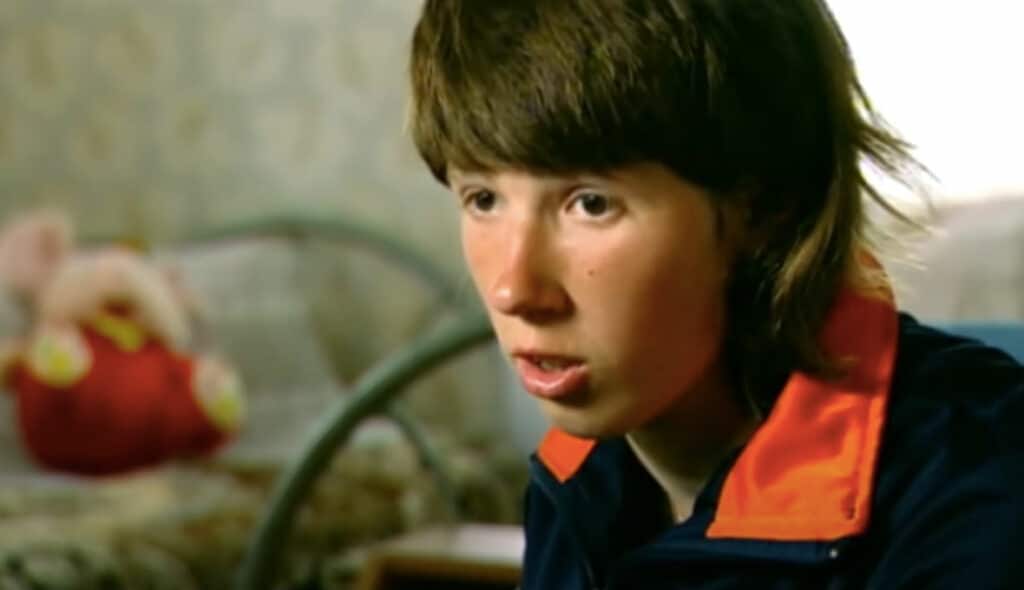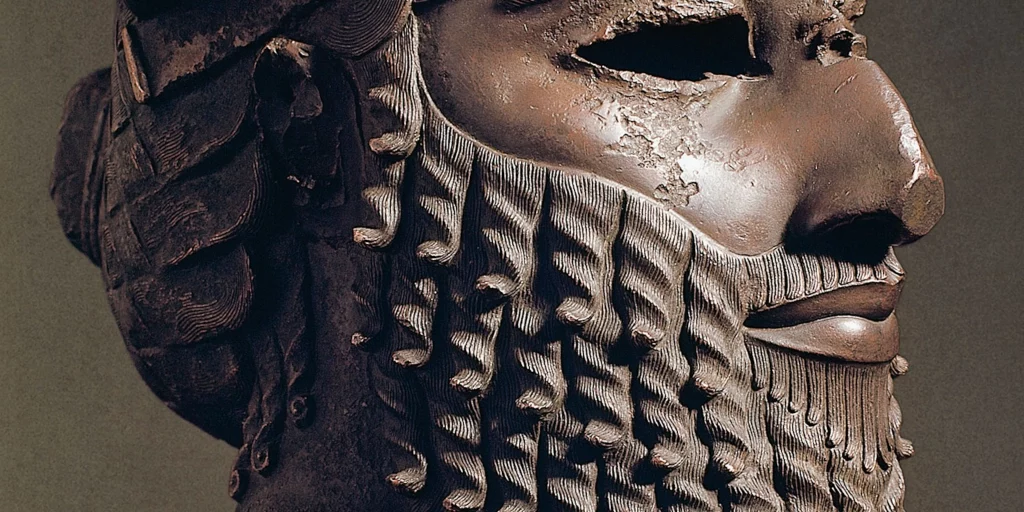When a neighbor found eight-year-old Oxana Malaya in the woods one day outside her home in Ukraine, she was shocked by what she saw.
A little girl, living among wild dogs, who walked on all fours and barked just like the rest of the pack. This little girl wasn’t acting. She had been raised by these dogs since the age of three.
She was the “dog girl.” This was a tragic case of childhood neglect. And a window into the relationship between nature and nurture in human development.

How Oxana Became a “Human Pet”
Oxana Malaya’s parents were alcoholics who paid almost no attention to their youngest daughter. One night, they left the tiny Oxana outside in the bitter cold. As Oxana later explained in an interview, “Mum had too many kids, we didn’t have enough beds.”
Faced with a chilly night, Oxana did the only thing she probably could have done to survive – she crawled over to her dog, Naima, and moved into her den. Soon other stray dogs joined them.
They eventually became a pack, and Oxana was just as wild as the rest of her four-legged family. She ate off of the floor face-first and cleaned herself with her tongue. She even learned to communicate with her family. She later explained that “I would talk to them, they would bark, and I would repeat it.”
She became so assimilated into her canine family that they regarded her as one of their own. The pack became so protective of Oxana that when authorities finally came to rescue her five years later, the rest of the pack defended her from what they must have thought was a threat. The dogs had to be plied with food scraps for authorities to be able to safely reach Oxana and take her away.
Oxana Malaya Returns to Civilization
Once Oxana Malaya was separated from her animal family, it didn’t mean her dog-like behaviors disappeared. She was taken to a children’s home where educators began teaching her to walk, talk, and act like a human again. But that was easier said than done.
When given an object, she would often hide it as a dog would. If someone tried to take it from her, she would lash out by barking or biting. Having been deprived of years of crucial development among humans, she even struggled to walk on two legs. She had grown accustomed to a four-legged gait.
One person who worked with her in the children’s home recalled that when she first arrived, “she wasn’t like a human being, she was like a small animal.” Someone else said that “She used to show her tongue when she saw water and she used to eat with her tongue and not her hands.”
But Oxana made rapid progress in her human education. She learned hundreds of words in a short period and soon began walking upright.
Still, over time it became clear that Oxana would never reach the developmental level that was normal for her age. Even in her 30s, researchers considered her level of development to be that of a six-year-old.
It turns out that despite being born a human, her upbringing left a profound mark on her that could not be undone. In the debate over nature and nurture in human development, it seems that nurture played a decisive role.
The Nature vs. Nurture Debate
For decades, scientists and researchers have wondered what plays a bigger role in our development – our genes or the environment that we’re raised in.
This is known as the nature vs nurture debate. Fortunately for researchers, as tragic as Oxana Malaya’s situation was, it also gave them a chance to gain some new insight into this thorny question.
While at the children’s home, many child psychologists studied Oxana’s behavior. They gave her a series of tests to determine her level of intellectual development.
Many were surprised by the fact that having lived much of her formative period among dogs, she was still able to gain a solid grasp of human language. Now, her way of speaking is odd; she speaks fluently but uses commands with very little inflection.
And Oxana Malaya is an exception to the experience that most feral children go through as they re-adapt to human society.
According to one linguist, the formative period for language acquisition lasts from birth to around 12 years of age. When a child grows up away from other humans, they often lose their ability to use language altogether.
There Have Been Many Other Feral Children
Take the case of Genie Wiley, for example. On November 4, 1970, it was discovered that thirteen-year-old Genie had grown up tied to a chair in a room that was completely isolated within a house on a quiet suburban street in Los Angeles.
Her father had kept her confined since she was a toddler and made it clear that she was not to make any noise. To make his point clear, he would beat and growl at her.
He had not wanted any children, so he made Genie disappear. Thus, she grew up all alone, away from any human contact. She was a feral child living in the heart of one of the world’s largest cities.
That lack of human contact meant that Genie was unable to do a lot of things that most other kids can do. Chief among those crucial skills that she lacked was language.
After being rescued by authorities, Genie at first didn’t talk at all. Then, much like Oxana Malaya, she began to learn to speak. But unlike Oxana, Genie never learned to create sentences and string them together.
Genie had simply missed out on too much crucial input growing up. She could utter two-to-three-word phrases but never grasped how to use grammar. Psychologists continued to work with Genie throughout the next two years, but eventually, Genie was transferred to a state institution.
Separated from the nurturing environment of the researchers and caretakers, her progress reversed. Today, very little is known of Genie and her development.
Oxana Malaya All Grown Up
Today, Oxana Malaya is 39 years old and seems to live a relatively normal life. As of 2013, she was living on a farm where she would take care of the animals with her boyfriend.
Fortunately, the story of Oxana Malaya shows that a child raised in the wild can still adapt to human society. And she reminds us that language is a crucial part of being human – but it is still just one factor among many others.

